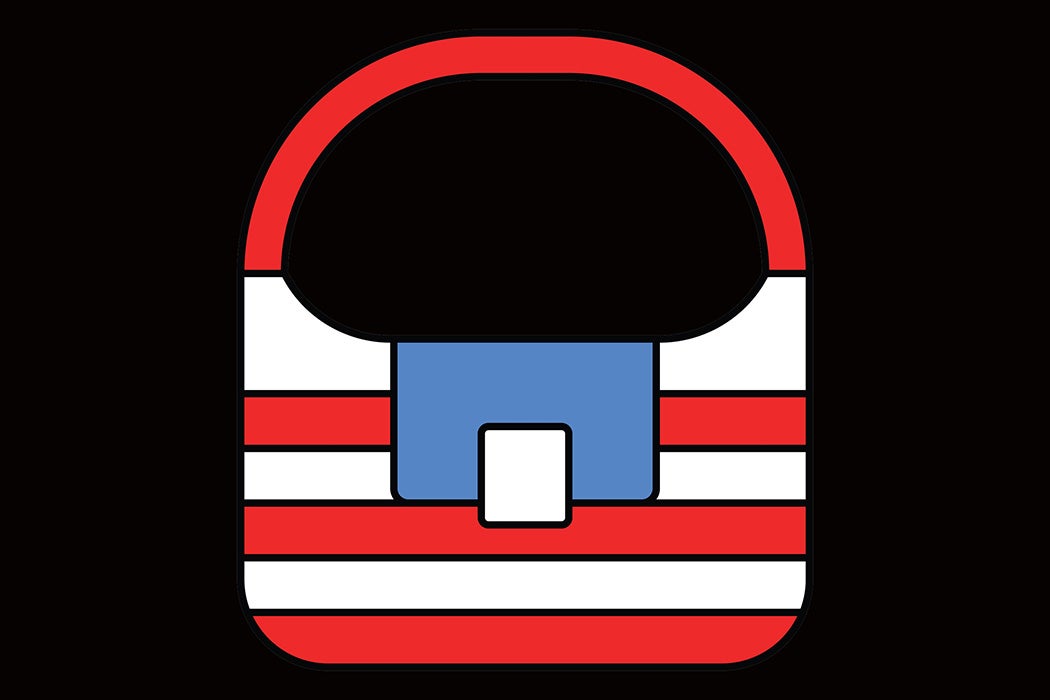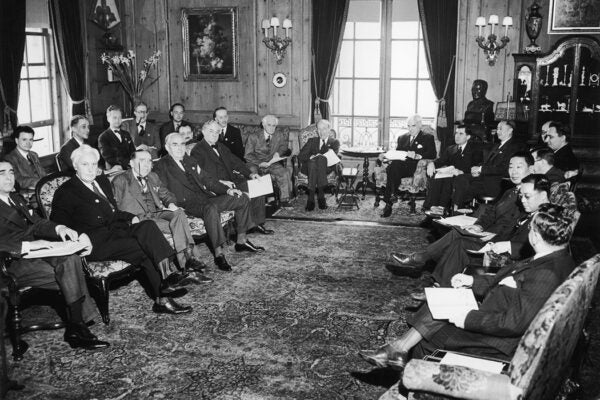On January 27, 2025, a week into the second Trump administration, the Office of Management and Budget (OMB) issued a memo announcing that all federal financial assistance was being paused to assess programs’ “consisten[cy] with the President’s policies and requirements.”
Two days later, a second memo rescinded the first. Two major suits had already been brought by parties affected by the cutoff, and one temporary injunction issued. The rescission announcement brought a brief sense of relief, but a tweet by White House Press Secretary Karoline Leavitt hours later removed any doubts about its intention:
This is NOT a rescission of the federal funding freeze.
It is simply a rescission of the OMB memo.
Why? To end any confusion created by the court’s injunction.
The President’s EO’s [sic] on federal funding remain in full force and effect, and will be rigorously implemented.—@PressSec, January 29, 2025, 1:40pm
As the week progressed, more information emerged, not only about funds being frozen, but about how the mechanisms and agencies that administrate these funds were being taken over by the non-governmental Department of Government Efficiency, comprised of Elon Musk and a cadre of young men with previous experience in his companies. Private servers were patched into payment systems (there’s a lawsuit for that), legacy code bases accessed and changed, and the personal data of millions of Americans made accessible to Musk employees with no governmental experience.
We, as a country, have not been here before, but in 1974 we briefly visited the neighborhood.
Three-Ring Government
The beloved animated series Schoolhouse Rock! covered a range of topics during its on-again, off-again run between 1973 and 1996: math, science, economics, computers, and grammar. A special series celebrating the US bicentennial, America Rock, produced what may be the best (and only) catchy tune about the Congressional process of making laws, “I’m Just a Bill,” sung by a bluesy scroll of paper to a child “sitting here on Capitol Hill.”
The episode was so ingrained in Americans’ understanding of the legislative process that during a 2007 debate on immigration, then Senator Jeff Sessions spoke in front of a posterboard sized blowup of “Bill”, arguing that the one before them hadn’t been through the lengthy review process as described in the song and so shouldn’t be passed.
Another, less-remembered episode in the America Rock series was “Three-Ring Government”; it explained the separation of powers and how they were intended to interoperate, as enshrined in the US Constitution. The song uses a three-ring circus to explain the executive, legislative, and judicial branches. To wit,
No one part can be
more powerful than any other is.
Each controls the other you see,
and that’s what we call checks and balances.
According to IMDB, the episode was in low rotation because “the writers were afraid of offending the government with the three-ring circus analogy.” When the episode aired in 1979, the memories of Watergate and “the circus” were still fresh in the minds of adults. The impeachment proceedings against President Richard Nixon were based not only on the burglary of the Democratic National Committee offices, but also on obtaining individuals’ IRS data to use against opponents, attempted misuse of the Central Intelligence Agency, attempted interference with the Federal Bureau of Investigation, and a contempt of Congress charge for refusing to cooperate with the House Judiciary Committee’s investigation. In this case, the legislative branch acted to stop the executive’s abuse of power, as the system was designed to do. Should Nixon have chosen to remain president rather than resign before a Senate trial, the process would have continued, likely resulting in his conviction.
But there was another, smaller clash between Nixon and Congress at the end of his second term in 1974, one more immediately relevant to the current federal funding freeze, and it may end at the Supreme Court (again) if the new head of the OMB, Russell Vought, has his way.
“Impounded in the Congressional Purse by A Constitutional Crisis”
In 1974, the Environmental Protection Agency (EPA) was only four years old, the product of Nixon’s first administration, and initiatives such as the Clean Air Act, the creation of the Occupational Health and Safety Administration (OSHA), and the requirement of environmental impact studies for projects were still ramping up. However, the president had vetoed the 1972 Clean Water Act (based on its cost, not the idea of regulating water standards itself). The veto was overridden, but rather than allow disbursement of the funds, Nixon impounded them, refusing to release the money. The impoundment was seen as a violation of the Congressional “power of the purse,” one granted to Congress by Article 1, Section 9, Clause 7 of the Constitution.
The City of New York, with the City of Detroit and other municipalities, brought suit against the head of the EPA, Russell Train, who complied with Nixon’s demand to withhold funding. The US Court of Appeals found in favor of the cities, a decision then appealed by the EPA. While the case was being heard and decided, Congress had already begun the process of budget reform, including the prevention of impoundment of already appropriated funds (a power explicitly accorded to Congress in the Constitution.) The Congressional Budget and Impoundment Control Act of 1974 created the Congressional Budget Office (CBO) and defined the process by which a president could request rescission of funding.
Because the Impoundment Control Act (ICA) was signed into law after the Train case was heard, the US Supreme Court didn’t use or review it when making its decision. They instead based their decision on the language of the Clean Water Act itself, upholding the Court of Appeals decision requiring the full disbursement of the funds. What may not have been envisioned by either the Supreme Court, or the legislators who wrote the ICA, was a president who would simply act without regard to either constitutional or congressional standing law.
Quid Pro Quo
The first violation of the ICA occurred during the first Trump Administration.
In 2019, US President Trump spoke with Ukrainian President Volodymyr Zelenskyy, who was only two months into his first term and fighting an already years-long Russian invasion of the Donbas region. During the phone call, Trump requested that Zelenskyy investigate former Vice President Joseph Biden and his son Hunter to find information that might be used against them during his re-election campaign. Subsequent actions by Trump included withholding already allocated defense funds from Ukraine to encourage Zelenskyy to act. This was an impoundment under the 1974 ICA, and it led to the resignation of two OMB staff concerned about the funding block. Ultimately, the news of Trump’s “quid pro quo” requests, and the stop on funding, resulted in a Congressional investigation and the first impeachment of the administration.
A later inquiry by the Government Accountability Office found that Trump had in fact violated the ICA and that “OMB withheld the funds from obligation for an unauthorized reason in violation of the ICA. We also question actions regarding funds appropriated to the Department of State (State) for security assistance to Ukraine.” This is where we circle back (so to speak) to the three-ring circus of the federal government, because impoundment seems to be about the executive branch trying to thwart the powers held by the legislative branch and may require the judicial branch to intercede.
It’s possible to see this episode from Trump’s first administration as a cautionary lesson. When coupled with another popular, albeit questionable, truism—from Watergate, no less—“it’s not the crime, it’s the coverup” (but there were a lot of crimes), one can hypothesize that the current administration decided instead to “go big” and public this time around.
When envisioning responses to a prima facie usurpation of congressional powers, using agents of a non-governmental organization that has been created not by the ordinary and accepted means but by executive order, which can neither create not eliminate a federal agency such as the US Agency for International Development (USAID) or the Department of Education, the three-ring circus analogy begins to seem both too on the nose and yet comically accurate.
Senatus Populusque Americanus
In his 2012 University of Pennsylvania Law Review article (expanded in 2017 as Congress’s Constitution), Georgetown legal scholar Josh Chafetz examined and analyzed the power dynamics between the three branches at the time (executive and judicial filling a vacuum that the legislative had created) and what Congress could do to restore a more equal balance between them.
The “hard” powers available to them, Chafetz writes, are those of the purse (including the prevention of impoundment), personnel (advice and consent, etc., added in his expanded book) and contempt. While contempt of Congress has been used more recently to compel testimony or the release of documents, those who refuse (e.g., Steven Bannon and Peter Navarro) may choose a trial and imprisonment instead of compliance.
As for personnel: as of this writing, no appointee has been stopped by Democrats once entering the confirmation process, and Senator Brian Schatz of Hawaiʻi has said he will place a “blanket hold” on State Department nominees to protest the dismantling of USAID. (Contrast with 2023, when Senator Tommy Tuberville held up more than 400 military promotions in response to the Defense Department making allowances for servicemembers to obtain legal abortions after Roe v. Wade was struck down.)
The “soft” powers of USAID and other agencies, ironically, may work in ways that may be more suited to our times, when they’re in fact used.
The first of such soft powers in Chafetz’s framework, freedom of speech and debate, provides for members of Congress to speak without criminal or civil liability “for speech acts (speaking, debating, introducing legislation, voting, etc.) performed in Congress,” acts which may not only be directed towards fellow members but to the public as well. This includes entering important documents into the Congressional record, which can then make them available to all (for example, Senator Mike Gravel’s submission of the Pentagon Papers.)
Internal discipline and cameral rules, which Chafetz enumerates as further “soft” mechanisms for use by members of the House and Senate, have taken a battering since the article’s 2012 publication. Currently single-party control of both houses and the presidency, coupled with an unwillingness from Republicans to break from their party (and presidential) agendas, may put these procedural tools out of reach. The power of ethics committees to investigate and bring censure or expulsion measures to the floor is significant, but recent use has been rare and, in some cases, motivated by partisanship.
America’s Next Top Crisis
As of this writing, some members of Congress have been begun to voice their protestations of perceived executive overreach (they’ve done so primarily at demonstrations and press conferences), but the judiciary is bearing the weight of citizens seeking intervention and relief. There have been thirty-seven suits filed against the administration related to birthright citizenship, transgender access to health care and identity documents, the withholding of appropriated funds, personal data privacy violations, the removal of agency websites and data, immigration, and more (a case tracker with links to livestreaming when available is here.)
And in two suits that have won temporary restraining orders, plaintiffs continue to report difficulties in receiving funding, prompting one of the judges to “reiterate” their ruling to those agencies continuing to withhold disbursements.
Among the non-compliant agencies?
The Environmental Protection Agency.
Support JSTOR Daily! Join our membership program on Patreon today.





